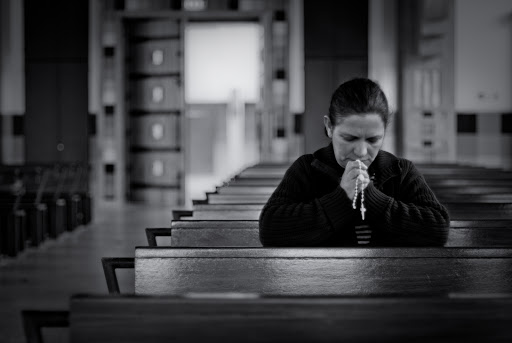New Evangelization, where art thou?
The Pew Research Center reports that the number of Americans who identify as Christian has fallen sharply, to the tune of nearly eight percentage points in only seven years.
The survey, carried out in 2014, was the second "Religious Landscape Study" Pew conducted since 2007. Based on the 35,000 people the institute interviewed, the American populace is 21% Catholic. It was 23.9% seven years ago.
While the percentage of Americans who identify as Christian dropped from 78.4% in 2007 to 70.6% in 2014, non-Christian religions are growing. Islam showed the greatest gains, growing half a percentage point to just under 1% of the population.
And while nuns may be aging and going on to their eternal reward, the "Nones" apparently are on the rise. Since 2007, Pew reports, Americans identifying as having no religion grew from 16% to 23%.
That means 56 million Americans do not observe any religion, making "nones" the second largest community after Evangelicals.
Nevertheless, America is still largely a Christian nation, with roughly seven-in-ten citizens continuing to identify with some branch of Christianity.
Christianity, especially Catholicism, Pew reports, has been losing more adherents through "religious switching" than it has been gaining. "More than 85% of American adults were raised Christian, but nearly a quarter of those who were raised Christian no longer identify with Christianity," it says.
Within Christianity the greatest net losses, by far, have been experienced by Catholics. Nearly one-third of American adults (31.7%) say they were raised Catholic. Among that group, fully 41% no longer identify with Catholicism. This means that 12.9% of American adults are former Catholics, while just 2% of U.S. adults have converted to Catholicism from another religious tradition. No other religious group in the survey has such a lopsided ratio of losses to gains.
Though Pew found that the Catholic Church in America has lost almost three percentage points during the seven years since the last survey, it admits that its numbers may be off:
Like mainline Protestants, Catholics appear to be declining both as a percentage of the population and in absolute numbers. The new survey indicates there are about 51 million Catholic adults in the U.S. today, roughly 3 million fewer than in 2007. But taking margins of error into account, the decline in the number of Catholic adults could be as modest as 1 million. And, unlike Protestants, who have been decreasing as a share of the U.S. public for several decades, the Catholic share of the population has been relatively stable over the long term, according to a variety of other surveys.
Pew also found an increasing diversity among religious groups. Racial and ethnic minorities now make up 41% of Catholics, for example, up from 35% in 2007.
The number of Hispanics in the Catholic Church in the US has risen, as has been expected. But the Christian community with the highest percentage of immigrants is actually the Orthodox, with about 40% being foreign-born.
Among Christian groups, the Orthodox tradition is most heavily made up of immigrants and the children of immigrants. Four-in-ten Orthodox Christians were born outside the U.S. (including 20% who were born in Europe, 7% who were born in sub-Saharan Africa and 7% who are from the Asia-Pacific region); 23% of Orthodox Christians are the children of immigrants. More than fourin-ten Catholics are either first-generation (27%) or second-generation (15%) Americans. Most Catholic immigrants were born in the Americas (including Latin America and the Caribbean, as well as Canada).
Bucking the decreasing trends in Christian America somewhat was the historically black Protestant tradition, which includes the National Baptist Convention, the Church of God in Christ, the African Methodist Episcopal Church, the Progressive Baptist Convention and others. Pew found that their numbers have remained relatively stable in recent years, at nearly 16 million adults.
"And evangelical Protestants, while declining slightly as a percentage of the U.S. public, probably have grown in absolute numbers as the overall U.S. population has continued to expand," the report said.
The BBC notes that non-religious Americans have become increasingly organized since 2007, forming political groups designed to keep religion out of public life.
Kelly Damerow with the Secular Coalition for America tells BBC News that the Pew findings "lend credence to the growth we’ve witnessed within our community and that we have the potential to hold a lot of political clout."

